In the dynamic landscape of UK business, managing finances efficiently is paramount. For small and medium enterprises (SMEs) and entrepreneurs, finding a cost-effective business bank account is crucial to optimise cash flow and minimise overheads. But what are the cheapest business bank accounts? And is cheap always better?
This article delves into the cheapest business bank accounts available, comparing their features, fees, and functionalities to aid UK business owners in making an informed decision.
Featured pro tools
Understanding business bank accounts
Before comparing accounts, it’s essential to grasp what business bank accounts offer and why they’re necessary.
Unlike personal accounts, business accounts are designed to handle higher transaction volumes and more complex financial activities, such as payroll, invoicing, and tax management.
They often come with additional services like business loans, overdraft facilities, and merchant services.
Factors to consider
When searching for a low-cost business bank account, consider the following factors:
- Fees and charges: Look beyond the headline figures to understand the fee structure, including monthly fees, transaction charges, and any hidden costs.
- Online and mobile banking: Ensure the account offers robust online and mobile banking facilities, crucial for real-time financial management.
- Customer service: Reliable customer support is vital, especially for businesses that handle a large volume of transactions.
- Overdraft and loan facilities: Some businesses might require access to credit facilities. Check the terms and interest rates.
- Additional features: Consider whether the account offers value-added services such as accounting software integration, expense cards, and international payment support.
Cheapest business bank accounts compared
| Bank/Provider | Account Type | Monthly Fee | Introductory Offer | Key Features | Overdraft Facility | International Payments |
|---|---|---|---|---|---|---|
| Monzo | Business Lite | £0 | None | Instant notifications, integrated accounting, multi-user access | No | Yes, with fees |
| Starling | Business Account | £0 | None | No charges for electronic payments, domestic transfers, ATM withdrawals | Yes | Yes |
| Revolut | Business Free | £0 | None | Free local transfers, cryptocurrency exchanges | No | Limited free transfers |
| HSBC | Kinetic | Variable | No fees for the first 12 months | Cash flow insights, overdraft applications | Yes | Yes |
| Barclays | Start-up Business Account | Variable | 12 months free banking | Access to a business manager, support services | Yes | Yes |
| NatWest | Business Current Account | Variable | Fee-free period for start-ups | Tailored support, access to business specialists | Yes | Yes |
| The Co-operative Bank | FSB Account | £0 for FSB members | None | Online and mobile banking, ethical banking practices | Yes | Yes |
| Metro Bank | Small Business Account | Variable | None | Suitable for in-branch banking, competitive fee structure | Yes | Yes |
This table provides an overview, and it’s essential to check directly with the banks for the most current information, as offerings and fees can change.
Comparing low-cost business bank accounts – What’s cheapest?
Several banks and financial institutions in the UK offer competitive business bank accounts. Here’s a comparison of some of the top low-cost options:
1. Cheapest challenger banks
Challenger banks, such as Monzo, Starling, and Revolut, have disrupted the traditional banking sector by offering digital-first solutions with transparent fee structures.
Monzo Business Lite

Monzo offers no monthly fee with features like instant notifications, integrated accounting, and multi-user access. However, cash deposits and international payments may incur fees.
Starling Business Account
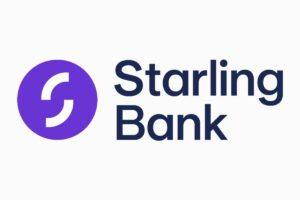
Known for its award-winning app, Starling offers a fee-free account with no charges for electronic payments, domestic transfers, or ATM withdrawals. It’s an excellent option for businesses looking for comprehensive digital banking services without hidden costs.
Revolut Business Free

Revolut‘s entry-level business account comes with no monthly fee and includes perks like free local transfers and access to cryptocurrency exchanges. However, there are limits on the number of free international transfers.
2. Cheapest traditional banks
Traditional banks such as HSBC, Barclays, and NatWest offer business accounts with more extensive branch networks and additional services.
HSBC Kinetic
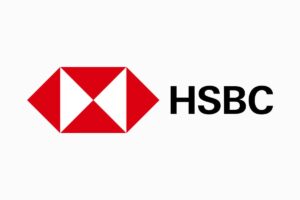
Designed for small businesses, HSBC Kinetic offers a digital account with no monthly fee for the first 12 months. It provides features like cash flow insights and the ability to apply for an overdraft.
Barclays Start-up Business Account
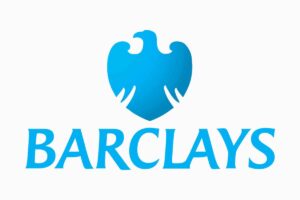
Barclays offers 12 months of free banking for start-ups, with access to a dedicated business manager and support services. After the initial period, fees depend on the account usage.
NatWest Business Current Account
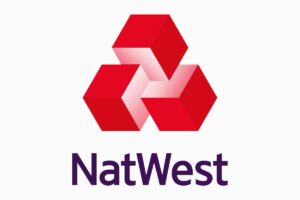
NatWest provides a tailored approach with a fee-free period for start-ups and support from a network of business specialists. Post the introductory offer, fees are based on account activity.
3. Building societies and niche providers
Some building societies and niche providers offer competitive business accounts, catering to specific industries or community-based businesses.
The Co-operative Bank FSB Account
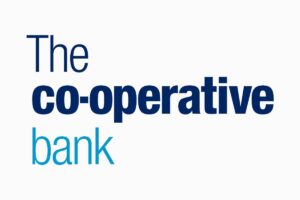
In partnership with the Federation of Small Businesses, The Co-op account offers free banking for FSB members, including online and mobile banking, with a focus on ethical banking practices.
Metro Bank Small Business Account
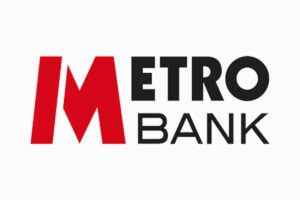
Metro Bank offers a straightforward business account with a competitive fee structure, particularly suitable for businesses that prefer in-branch banking alongside digital services.
Making the choice
Selecting the cheapest business bank account depends on your business needs.
- For digitally savvy businesses with fewer cash transactions, challenger banks might offer the most cost-effective solutions.
- Traditional banks could be more suitable for businesses valuing face-to-face interactions and a broader range of financial products.
Conclusion – Choosing a cheap business bank account
The UK business banking sector is rich with options catering to the diverse needs of SMEs and entrepreneurs. By carefully assessing fees, features, and the specific needs of your business, you can identify the most cost-effective business bank account.
Remember, the cheapest option isn’t always the best in terms of value. Consider the overall package, including customer service, digital tools, and additional services, to ensure your business banking supports your company’s growth and operational efficiency.
FAQ – Cheapest business bank accounts compared
The cheapest business bank account can vary based on your business needs, but digital-first banks like Starling and Monzo offer competitive, low-cost accounts with no monthly fees for basic services.
Compare digital banks such as Revolut and traditional banks offering introductory deals like Barclays, focusing on start-up friendly features and fee waivers.
Always read the terms and conditions. Even the cheapest accounts might have fees for additional services like overseas transactions or cash deposits.
Yes, some accounts like HSBC Kinetic offer overdraft facilities, but the terms and interest rates can vary, so it’s important to compare options.
Most banks participate in the Current Account Switch Service, making it easy to switch business accounts within seven working days.
Features vary but often include online banking, instant notifications, invoicing tools, and integration with accounting software.
While they are often aimed at SMEs, sole traders and freelancers can also benefit from these accounts, depending on their banking needs.
Some, like Revolut Business, offer international payment options with competitive fees, but it’s essential to check for any limitations.
Digital banks often provide robust online support, while traditional banks may offer a mix of in-branch and digital support services.
Options vary; digital banks might have limitations or fees for cash and cheque handling, unlike traditional banks with branch networks.
Many, including Starling and Monzo, offer direct integration with popular accounting software like Xero and QuickBooks.
Use comparison websites and check out each bank’s official site for the most up-to-date information on fees, features, and eligibility criteria.
Some accounts offer features like categorising transactions for tax purposes, but it’s best to consult with a tax professional for comprehensive tax support.
Yes, both digital and traditional banks are regulated and must adhere to strict security standards to protect customers’ funds and data.
While rare, some accounts may offer rewards or discounts on business services, so it’s worth checking the account details.
Digital banks can often offer quick online account opening, sometimes within minutes, whereas traditional banks may take a few days.
Many low-cost accounts do not have a minimum balance requirement, but it’s important to verify this before opening an account.
Some banks may offer a business credit card, but eligibility and fees can vary, so it’s important to inquire directly.
Consider your business’s specific banking needs, such as transaction volume, the need for physical banking, and additional banking services, to determine the best fit.
Most banks offer a range of business banking products and can work with you to transition to an account that better suits your expanded needs.

